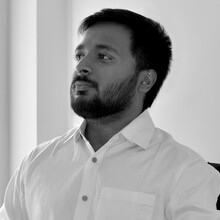
Session Highlights
-
SAaTH- Sustainability in Action and Thought, one of the six pillars of Architects' Social Responsibility by Ethos Foundation | Arcause, will be the focus of this talk.
-
Sushma Iyengar is a social changemaker whose work spans decades of grassroots engagement in gender justice, cultural resilience, and community-led development. She has played a pivotal role in shaping post-disaster recovery into a process of empowerment, especially for women in rural contexts. As a mentor, educator, and author, her efforts have fostered platforms for craft artisans that engage deeply with the ecosystems of their crafts, while her broader work continues to centre local knowledge, heritage, and participatory governance.
-
Aditya Sharma is a natural building practitioner whose work is rooted in ecological responsibility and material honesty. Engaging with lime, mud, and timber since his architectural studies, he challenges industrial norms through practices that prioritize environmental health and human well-being. His philosophy sees shelter-building, farming, and cooking not as hobbies, but as essential, instinctive life skills that reconnect people with land and labor.
About the Speaker

Sushma Iyengar

Aditya Sharma
About Sense N Sensibility
Sense N Sensibility (SNS) is a lecture series by ACEDGE, to allow access to expert viewpoints, from across the globe. These experts would demonstrate, through their choices, experiments and lessons, multiple vantage points for developing and exploring design.
Sense N Sensibility is about integration and the big picture. We seek to dishevel the older notions of compartmentalisation of knowledge and introduce learners across the country to collaborative and interdisciplinary studies. Many of our speakers are experts from varied fields- a mayor, a grassroots social worker who works towards community empowerment, an engineer working to resolve water-crisis, sustainability experts, social scientists, travellers, industrial entrepreneurs, and many others.
The inaugural lecture for the SNS series was delivered by Architect George Ferguson, Past President RIBA (2003/5) and first elected Mayor of Bristol UK (2012-16). On the other side of the globe, Architect Ferguson, fought for the rights of a neighbourhood to remain ‘mixed’, against the monoculture promoted by developers.
The second lecture by Amit Pasricha celebrates the lesser-known built heritage of India and his Journey of the 'India- Lost and Found' Campaign.
The third lecture was by a Pritzker Jury member, André Aranha Corrêa do Lago, also Brazilian Ambassador to India. He spoke about Pritzker winning Laureates from the countries of India, Brazil and Japan.
The fourth lecture was by Ar. Rafiq Azam of SHATOTTO Architecture of Green Living on Phenomenal Practice and Thought-provoking Explorations on the field of Architecture and recent Urban Interventions.
The fifth lecture was by Ar. Yasmeen Lari, Pakistan's first female architect. She spoke on lowering the Carbon Footprint: Humanistic Architecture for Post-COVID-19 World.
The sixth lecture by Ar. Krishna Rao Jaisim and Ar Narendra Dengle iterated the relevance and applicability of the underlying concepts of the Gandhian philosophy.
The seventh lecture conducted by Ar. Shirish Beri talked about the importance of architecture in shaping human behaviour.
The eighth lecture by Ar. Prasanna Desai and Ar. Amit Gupta elaborated on Design Research in Practice and Pedagogy.
The ninth lecture by Dr. Anupama Kundoo talked about the social and environmental duties of an Architect.
The tenth lecture by Prof. Neelkanth Chhaya was an edition to commemorate the Teacher's Day as he shared anecdotes and insights on Learning and Teaching in Architecture.
The eleventh lecture by Prof. Habeeb Khan, former president of CoA, was a deliberation to discuss NEP, Admission and, Exit test and much more.
The 12th lecture by Poonam Natarajan and Ar. Shivani Shah shared how Universal Design can be the guiding principle to shape our spaces inclusively.
The 13th lecture was by Jugadopolis, Ronojoy Sen and Shyamal Datta on Traditional Wisdom and Vernacular Architecture.
The 14th lecture focussed on Construction workers under the ShramA-Project Dignity. We spoke with Nari Puraskar winner Rani Mistry, Sunita Bhagat- a conversation of resilience, teamwork, and the skills of construction workers.
The 15th lecture was by Ar. Lakshmi Swaminathan on exploring the wisdom of Didi Contractor, followed by a discussion with Naresh Bhai on indigenous wisdom in contemporary architecture for World Indigenous People's Day.
The 16th SNS was a lecture by Neelkanth Chhaya, Riyaz Tayyibji, and Tridip Suhrud sharing insights from their book Gandhi’s Places: An Architectural Documentation. Discover the architectural significance and cultural impact of Gandhi’s key locations through their expert perspectives.
The 17th lecture was dedicated to a discussion on harnessing rainwater for sustainable living by Vishwanath Srikantaiah a.k.a. The Rain Man of Bengaluru also known as the Zenrainman followed by a lecture by Kalpana Ramesh - ‘Water Warrior’ known for The Rainwater Project.
The last- 18th Sense N Sensibility, featured Chitra Vishwanath and Sanjay Prakash. They discussed sustainable design approaches. This event also marked the launch of the Mphasis F1 Mentorship Program. As they talked about various strategies and explored project demonstrations.
SNS 19.0, Designing from the Ground Up, featured Ar. Zeenat Niazi & Ar. Pooja Khairnar in conversation. The session explored how circular economy & community-rooted studio practices can reimagine design responses to real-world challenges.
Join Now
Collaborate for global explorations through ACEDGE
Institutional Partners











